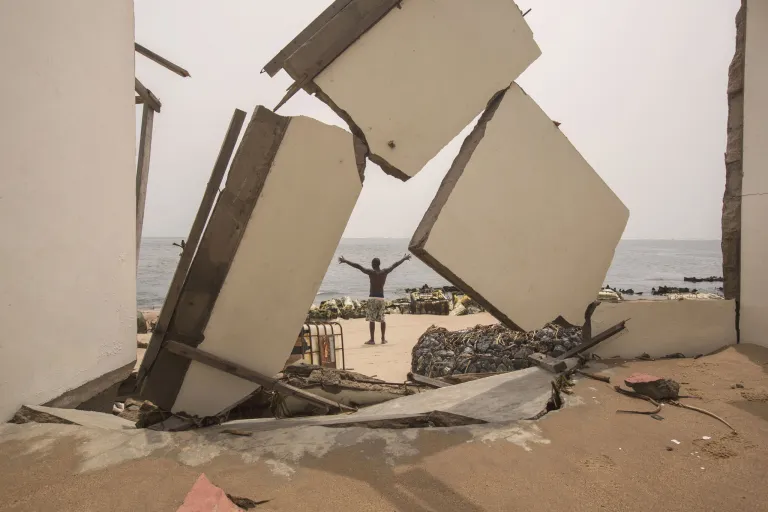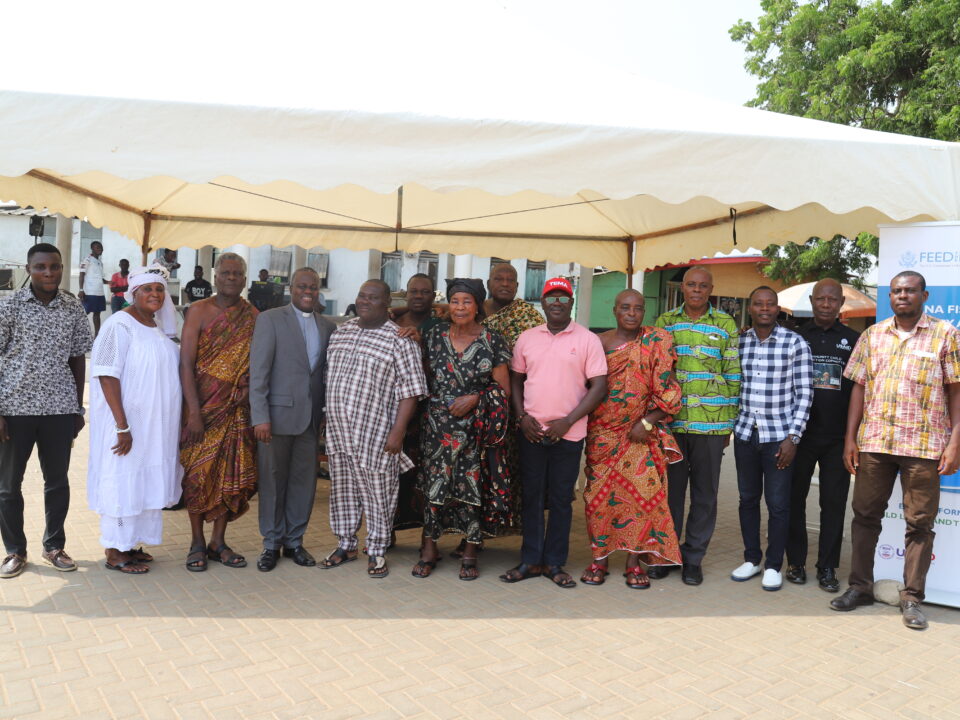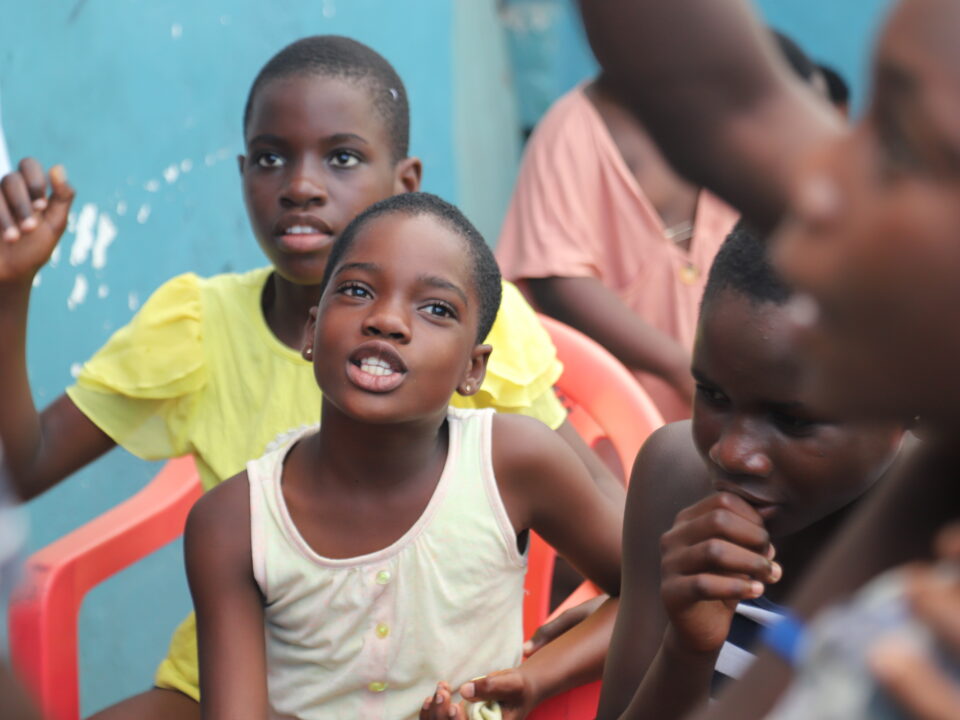
OUTSIDE BROADCASTS IN CHORKOR, TEMA NEW TOWN & AZIZANYA
March 28, 2024
CALL FOR CURIOUS MINDS YOUNG BOARD MEMBER
May 21, 2024In journalism school, my teachers often said “the media is the fourth estate of the realm.” This is a phrase I have also rehashed in many spaces including radio and TV. I have grown to experience the power of the media in shaping mindsets, influencing government policies, and causing social change which promotes development. Through broadcast, print, and digital media, journalists have told stories, sometimes at the expense of their lives. Over the years, journalists have been restrained, detained, tortured, and some killed in their quest to get information, uncover truths, and serve their responsibility to the citizens of their country. Unfortunately, state institutions such as the police service, military, and even political operatives of ruling parties have been a thorn in the flesh of journalists, making attacks physically, verbally and mentally, sometimes putting them in remands, damaging equipment, and a lot of the time, leading to the death of journalists.
To be honest, I doublethink my choice of profession often: do I want to die early when I am only doing right? Do I want to keep hiding from people who should be protecting me? How many times do I want to change my SIM card and keep fighting to keep myself and my family safe? All because I swore allegiance to the truth and the truth alone, promising to end corruption, end suffering, and promote sustainability?
Now to sustainability, it has been with many grey areas, especially in the global south. Our lag in development has been caused by internal and external factors that need to be heard, meaning someone has to say them. Africa has been a dump site for electronic waste from the global north, causing an unbearable increase in lead poisoning in countries that receive them. This is just the tip of the iceberg. We continue to face the world’s triple planetary crisis: climate change, biodiversity loss, and air pollution from self-made factors, including illegal mining (galamsey), deforestation, industrial waste, plastic waste, and I could go on and on with the enormous list of the problems we humans have created. Businesses causing these are owned by “big men” who seem untouchable, flying high over the heads of those who put them up there. So, we live in and with toxicity, deformities, polluted food crops, changes in weather seasons, and run out of water because its treatment becomes more costly. Remember, the people causing these problems are nowhere close to the affected end.

Then, the question of what journalists are doing comes to mind again. But I counter ask, “how free and safe is it for journalists to do their work in an environment where they can be attacked at any time for doing their job?”
In our part of the world, access to information is a headache. Although the Right to Information Bill was passed in 2019 to guarantee journalists’ access to public information, it hasn’t been quite the case in reality. The bureaucracy, the information restriction, and the intimidation of those who trust the information system still stand as a huge challenge to the bill’s effectiveness. But to solve these developmental problems that have become a cankerworm in the flesh of our country, we need information: information on progress processes, actions, beneficiaries, spending, and all that is needed to tell a social interest story. Journalism and Media Lab, is a project of the Wits Centre for Journalism, upon engaging with journalists and civil society organizations (CSOs) says, “according to them, some public institutions such as the Ghana Police Service, Ghana Health Services and other institutions are fond of withholding information and intimidating journalists whenever they visit their offices for information. They said the new law, in effect, restricts access to information at the country’s presidency and exempts information relating to some government institutions, which critics described as a fly in the face of transparency. Aside from this, education on the law has been very low, and many people, including journalists themselves, did not know how to use it to secure information.”

So tell me, how do we do our work as journalists seeking sustainable development?
In all these, press freedom keeps screaming as a fundamental solution. That is, the right of the press to publish and disseminate information, thoughts, and opinions without restraint or censorship as guaranteed under the country’s laws. That is why we celebrate the World Press Freedom Day, declared by the UN General Assembly in December 1993 after the recommendation of UNESCO’s General Conference. For the past 31 years, the day has served as a reminder to governments to strengthen their commitment to press freedom. It is also a day of reflection among media professionals about issues of press freedom and professional ethics. It is an opportunity to reflect on multidimensional challenges, the crucial role of journalism, and the transformative power of reliable information to protect our planet, achieve sustainable development, and consolidate democracies.
This year, World Press Freedom Day is dedicated to hammering the importance of journalism and freedom of expression in the current global environmental crisis. Under the theme, “A Press for the Planet: Journalism in the face of the environmental crisis”, this year’s World Press Freedom Day addresses the necessity for journalists to have the freedom to report accurately, timely, and comprehensively on environmental issues and their consequences, as well as on possible solutions. Just like other information, journalists face many challenges in seeking and disseminating information on current environmental issues, including supply chain problems, climate migration, extractive industries, illegal mining, pollution, poaching, animal trafficking, deforestation – generally, the world’s triple planetary crisis. Ensuring the visibility of these issues is crucial for promoting peace and democratic values worldwide, information disorder about environmental issues can lead to a lack of public and political support for climate action, effective policies, and the protection of vulnerable communities affected by them.
So today I say this, as I opened this article with the media is the fourth estate of the realm. Journalists have the power to transform and change minds; we have the ability to cause shifts and help attain the sustainable development goals we have been fighting for all these years. Equip us, free us, work with us, and make our work easier. Molestation, restriction, and not even jail can stop us. We have, and continue to fight for justice and change, and we won’t stop! So we say, allow us be the press for the planet.
Written by Helena Amoah (Nana Aba Appiatewaa)



